General Secretary To Lam and other Party and State leaders visit the Exhibition "Achievements in private economic development and booths displaying products of private enterprises"_Source: nhandan.vn
Marxism-Leninism and Ho Chi Minh's thought suggest approaches to private economic development in the new period.
During their lifetime, Karl Marx and Friedrich Engels mentioned forms of ownership, ownership relations and the presence of forms of ownership and ownership relations through periods of development associated with the formation of socio-economic formations. In the work Manifesto of the Communist Party , they pointed out: "The abolition of previously existing ownership relations is not an inherent characteristic of communism" (1) ; "Communism does not deprive anyone of the ability to appropriate social products. Communism only deprives the right to use that ownership to enslave the labor of others" (2) .
VI Lenin, when the Russian October Revolution succeeded, the Soviet State was born, to adapt to the specific conditions of Soviet Russia in the new context, to overcome the difficulties of the economy, advocated the implementation of the "New Economic Policy" (NEP). The characteristic of the economy in the transition period to socialism was pointed out by VI Lenin, that is the intertwined existence of many economic sectors with many forms of ownership, including the existence of a private economy based on private ownership of the means of production. After only a short time, the implementation of the NEP helped the socio-economy of Soviet Russia to improve rapidly, helping Soviet Russia promptly overcome difficulties and promote socio-economic development.
It is also necessary to realize that private ownership or private economy was born very early and is not identical with capitalism. Each economic component has its own nature and operating rules, based on a certain form of ownership of means of production, capable of relatively independent reproduction of production forces and corresponding production relations. Accordingly, the foundation of private economy comes from the form of private ownership. In the history of socio-economic forms, private ownership appeared after the primitive communist mode of production collapsed, the slave-owning mode of production was born. Capitalism has the basic characteristic of being closely linked to capitalist private ownership of means of production and private capitalist economy.
During his lifetime, in his work “Common Political Knowledge” (September 1953), President Ho Chi Minh mentioned the existence of different types of economies, including the private economy, in the process of economic construction and national construction, and advocated the synchronous development of economic components: “national capitalists and individual economies of farmers and craftsmen. That is also a necessary force for the construction of the national economy”; “People with shops, small handicraft or technology workshops are oppressed by foreign goods and cannot develop... National capitalists are also oppressed and hindered by imperialism and feudalism, with no way out, their businesses are very unstable and often go bankrupt” (3) . Right from the early days of the founding of the Democratic Republic of Vietnam, now the Socialist Republic of Vietnam, President Ho Chi Minh issued many documents recognizing the existence of the private economic sector, such as Article 1 of Decree No. 48, dated October 9, 1945, of the President of the Provisional Government of the Democratic Republic of Vietnam, which stipulates: "While waiting for a law to clarify the legal status of foreign industrial or commercial companies or firms in Vietnam, existing foreign companies or firms are allowed to continue their business activities as before"; Clause II of Decree No. 43, dated October 10, 1945, of the President of the Provisional Government of the Democratic Republic of Vietnam, which stipulates: "That fund includes subsidies from the Government or localities, and has legal status to receive personal or private property donated"; Article 1 of Decree No. 6/SL, dated January 20, 1950, of the President of the Democratic Republic of Vietnam stipulates: “A public-private joint venture company is an anonymous company in which the Government joins capital with the private sector to conduct business according to the Government's general economic plan”; Article 3 of Decree No. 119, dated October 10, 1952, of the President of the Democratic Republic of Vietnam stipulates: “Assist and guide the printing and distribution of private publishers”...
Thus, the presence of ownership forms and ownership relations through development periods associated with the formation of socio-economic forms, as well as the existence of different economic types and the role of economic sectors, including the private economy in the process of economic construction and national construction have been clearly pointed out by the classics of Marxism-Leninism and President Ho Chi Minh. The perspective and creative application of Marxism-Leninism and Ho Chi Minh's thought on private economic development have helped us shape the way to create new development, in which, along with the presence and development of other economic sectors, the private economy is the most important driving force of the national economy in the socialist-oriented market economy, the lever for a prosperous Vietnam.
According to President Ho Chi Minh's instructions, it can be clearly seen that private economic development is not "privatizing the national economy", but a way to "unleash all resources", maximizing the strength of economic sectors. This is completely reasonable; because the resources of the private economy are not only in enterprises, but also in the people. This has been firmly maintained by our Party through many congresses and recently pointed out by General Secretary To Lam: "A prosperous economy cannot rely solely on the state sector or foreign investment, but must rely on internal strength, which is a strong private sector, playing a pioneering role in innovation and development of the country. The national economy is only truly prosperous when all people participate in labor to create material wealth, a society where everyone, every household, and every person is enthusiastic about working" (4) .
The process of perfecting the Party's guidelines and policies, the State's policies and laws on private economic development
In the period of renovation, developing a multi-sector economy is considered an effective way to gradually remove the limitations and shortcomings of the Vietnamese economy; create conditions to maximize the liberation of all resources, promote the role of economic sectors and forms of ownership. Among those economic sectors, the private economy is highly valued by our Party.
In the early 1980s of the 20th century, after a long period of maintaining two economic sectors, the state and the collective, our country's economy fell into a state of stagnation; because, "while the capital of the State and the collective is still limited, the remaining capital in the people is almost only used for consumption or storage and purchase of goods for storage" (5) . From that perception, our Party pointed out the need to "Eliminate biases in the evaluation and treatment of workers of different economic sectors..., creating a favorable social psychological environment for implementing policies on using and reforming the multi-sector economy" (6) . This is a very important guiding viewpoint in changing the economic development strategy since the 6th Party Congress. This viewpoint has paved the way for the policy of developing the private economy in Vietnam during the renovation period.
At the 6th Central Conference of the 6th term (1988), our Party continued to affirm that developing a multi-sector economy is a consistent policy of the Vietnamese economy in the transitional period; at the same time, it affirmed that the private economy is developed without restrictions on location, scale, in industries and occupations that are not prohibited by law. At the 7th Congress (1991), our Party was more specific about the management mechanism for the private economy: "The private economy is developed, especially in the production sector, under the management and guidance of the State" (7) . After 10 years of the country's renovation (1996), at the 8th Congress, our Party recognized the position, role and contribution of the private economy to the country's development. Our Party emphasized: "Individual and small-owner economies have an important and long-term position" (8) .
At the 5th Central Conference of the 9th term (March 2002), for the first time, our Party issued a specialized resolution on private economic development - Resolution No. 14-NQ/TW "On continuing to innovate mechanisms and policies, encouraging and facilitating private economic development" (hereinafter referred to as Resolution No. 14). The Resolution affirmed: "The private economy is an important component of the national economy. Private economic development is a long-term strategic issue in the development of a multi-sector socialist-oriented economy, contributing significantly to the successful implementation of the central task of economic development, industrialization, modernization, and enhancing the country's internal strength in international economic integration" (9) .
The 12th Congress marked a breakthrough in our Party's viewpoint on private economic development, affirming: "The private economy is an important driving force of the economy" (10) . This shows the Party's recognition of the increasingly important role of the private economy in the national economy. To realize the policy of the 12th Congress on private economic development, at the 5th Central Conference (12th tenure), our Party issued Resolution No. 10-NQ/TW, dated June 3, 2017, "On developing the private economy to become an important driving force of the socialist-oriented market economy" (hereinafter referred to as Resolution No. 10).
In particular, on May 4, 2025, the Politburo issued Resolution No. 68-NQ/TW "On private economic development" (hereinafter referred to as Resolution No. 68), stating that after nearly 40 years of renovation, our country's private economy has gradually developed in both quantity and quality, becoming one of the important driving forces of the socialist-oriented market economy. The Resolution sets the goal that by 2030, the private economy will be the most important driving force of the national economy; a pioneering force in science and technology development, innovation and digital transformation.
It can be seen that during the renovation period, the Party's guidelines and policies on the private economy have been gradually supplemented, developed, and increasingly perfected, promptly reflecting the great contributions of the private economy.
The Party's guidelines and policies not only affirm the role and great contributions of the private economy, but also orient to enhance the role and position of the private economic sector with specific and realistic solutions, ensuring synchronization with other economic sectors, coordination and harmonious combination between the State and economic sectors, while still ensuring the State's creative role, such as strengthening the connection between private enterprises, private enterprises with state-owned enterprises and enterprises with foreign direct investment; expanding the participation of private enterprises in important national projects; diversifying and improving the effectiveness of forms of cooperation between the State and the private economic sector. Resolution No. 68 also clearly states the honoring, commendation and reward of typical, advanced entrepreneurs and enterprises that do business effectively and sustainably, fulfill social responsibilities well, and actively participate in community activities...
In the article “Private economic development - Leverage for a prosperous Vietnam”, General Secretary To Lam continued to affirm: “The private economy must be the pioneering force in the new era”, “The private economy needs to strive to become the main force, leading in the application of technology and innovation”.
The General Secretary's viewpoint when orienting the private economy to play the role of "pioneer", "main force", "leader" in a number of industries and fields related to science - technology and innovation is the supplement and development of our Party's viewpoint on the role of the private economy in the new era of development - the era of national development; is the concretization and development to a new height of the policy of developing the private economy; helping the private economy go hand in hand with the state economy and the collective economy - two economic components that form a solid foundation of the national economy and the economy with foreign investment; promoting and diversifying capital sources for the private economy, strengthening the connection between the private economy and the state economy, the collective economy and the economy with foreign investment; Gradually forming and mobilizing a team of excellent, dedicated and visionary businessmen to participate in national governance, contributing to ensuring the implementation of the socialization policy associated with many important fields, such as providing high-quality healthcare and education services, developing cultural and entertainment industries, linking research facilities with practice, contributing to commercializing research results...
Production line at Hoa Phat Steel Company (Pho Noi B Industrial Park, Hung Yen province)_Photo: VNA
The development and increasingly important role of the private economy in the country's development is associated with the process of perfecting the Party's guidelines and policies and the State's policies and laws.
Our Party and State have focused on developing the private economy through many orientations, measures and policies to ensure harmony and synchronization with other economic sectors. Since Resolution No. 14 was issued more than 20 years ago, our Party has advocated that developing the private economy is a long-term strategic issue in developing a socialist-oriented multi-sector economy, contributing significantly to the successful implementation of the central task of economic development, industrialization, modernization, and enhancing the country's internal strength in international economic integration. Since Resolution No. 14, the policy of developing the private economy has been increasingly supplemented and perfected: from recognizing the state, collective economy and private economy as the core to develop an independent and autonomous economy in Resolution No. 10, to recognizing that together with the state economy, collective economy and private economy play a core role in building an independent, autonomous, self-reliant and self-reliant economy associated with deep, substantial and effective international integration, helping the country escape the risk of falling behind and rise to prosperous development. This is a theoretical development of the viewpoint on developing the private economy, ensuring the highest promotion of internal strength, while combining internal and external strength in Resolution No. 68-NQ/TW.
One of the highlights and effective implementation in recent times is the policy of encouraging the formation of multi-ownership private economic groups and private capital contribution to state economic groups, capable of participating in regional and global production networks and value chains in Resolution No. 10, encouraging the private economy to participate in contributing capital and purchasing shares of state-owned enterprises during equitization or State divestment, we have succeeded in developing private sector enterprises, creating the foundation for the birth of the policy of expanding the participation of private sector enterprises in important national projects; The State proactively has policies for ordering, limited bidding or designated bidding or has preferential policies to encourage the private economic sector to participate with the State in strategic fields, key and important national scientific research projects and tasks (such as high-speed railways, urban railways, spearhead industries, energy infrastructure, digital infrastructure, green transportation, defense industry, security, etc.), urgent and pressing tasks.
It is clear to see the rapid development and great contribution of the private economy to the general achievements that the country has achieved over nearly 40 years of implementing the renovation process. In the article "Private economic development - Leverage for a prosperous Vietnam", General Secretary To Lam compared the development of the private economy in the early period of renovation with recent years to demonstrate the rapid development and great contribution of the private economy to the general achievements that the country has achieved over nearly 40 years of implementing the renovation process. That is: “If in the early stages of innovation, the private economy only played a secondary role, the economy mainly relied on the state sector and foreign investment (FDI), then in the past two decades,... this economic sector has risen strongly, becoming one of the most important pillars of the economy and increasingly showing itself to be a particularly important driving force to promote national economic growth. With nearly one million enterprises, about 5 million individual business households, the private economic sector currently contributes about 51% of GDP, more than 30% of the state budget, creating more than 40 million jobs, accounting for more than 82% of the total number of workers in the economy, contributing nearly 60% of total social investment capital” (11) . This is an assessment based on a summary of practices, along with a comparison and contrast of the appearance of the Vietnamese economy under the impact of the private economy. The General Secretary also pointed out that the private economy not only creates significant changes to the face of the national economy, but also creates many jobs, improves the material and spiritual life of the people, and gives rise to a new generation of production and business entities - a generation of Vietnamese entrepreneurs who not only have many great marks on the domestic market, but also strongly reach out to the world.
Considering the private economy as “a lever for a prosperous Vietnam” continues to supplement and develop our Party’s viewpoint on the increasingly important role of the private economy in the new era of development, the era of national growth; is a supplement and development of the theory on developing a socialist-oriented market economy, including synchronous and comprehensive development for all economic sectors, focusing on promoting growth, while ensuring harmony with environmental protection and sustainable development.
General Secretary To Lam also pointed out that although there are still certain limitations, "bottlenecks" and "barriers" to private economic development, with the great results that the private economy has brought, we can completely believe in the bright future of the country - a prosperous Vietnam; At the same time, it gives us confidence and strength in the Party's correct policies, enhances our resistance and vigilance against the false arguments of hostile, reactionary, and opportunistic political forces: "We are living in a historic moment, witnessing the unprecedented development of science and technology and a volatile international environment, both cooperation and struggle, where opportunities and challenges always go hand in hand. But with a resilient spirit, with determination and burning desire, Vietnam can absolutely create a new miracle in socio-economic development! A strong economy is being formed, a generation of Vietnamese entrepreneurs with courage and innovation, full of business enthusiasm and patriotism, is continuing the story of success and a bright future, a socialist Vietnam standing shoulder to shoulder with the world powers as President Ho Chi Minh wished, is gradually becoming a reality in the near future" (12) ./.
-------------
(1), (2) C. Marx and F. Engels: The Communist Manifesto , National Political Publishing House Truth, Hanoi, 2017, pp. 99, 103 - 104
(3) Ho Chi Minh: Complete Works , National Political Publishing House Truth, Hanoi, 2011, vol. 8, p. 267
(4) Professor, Dr. To Lam: "Private economic development - Leverage for a prosperous Vietnam", Communist Magazine , No. 1,059, April 2025, p. 5
(5), (6), (7), (8) Documents of the National Congress of Delegates in the Renovation Period (Terms VI, VII, VIII, IX, X ), National Political Publishing House, Hanoi, 2010, p. I, pp. 52, 58 - 59, 333, 681
(9) Documents of the 5th Conference of the 9th Central Executive Committee , National Political Publishing House, Hanoi, 2002, pp. 57 - 58
(10) Documents of the 12th National Congress of Delegates , Central Office of the Party, Hanoi, 2016, p. 25
(11), (12) Professor, Dr. To Lam: "Private economic development - Leverage for a prosperous Vietnam", Communist Magazine , No. 1,059, April 2025, pp. 3 - 4,8
Source: https://tapchicongsan.org.vn/web/guest/thuc-tien-kinh-nghiem1/-/2018/1111402/phat-trien-kinh-te-tu-nhan---chu-truong-thuc-day-khoi-nghiep%2C-doi-moi-sang-tao%2C-dong-luc-cho-mot-viet-nam-thinh-vuong.aspx


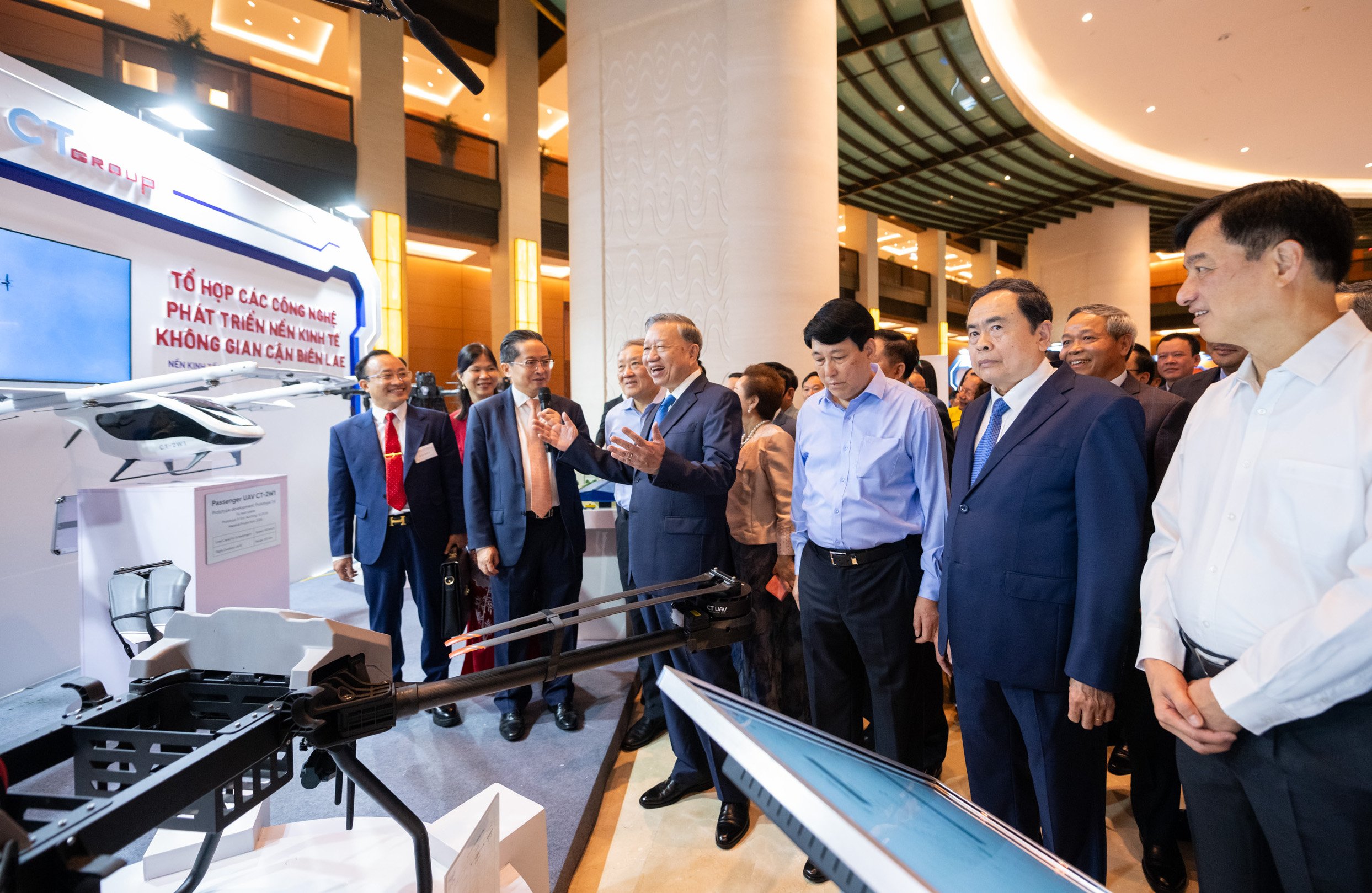
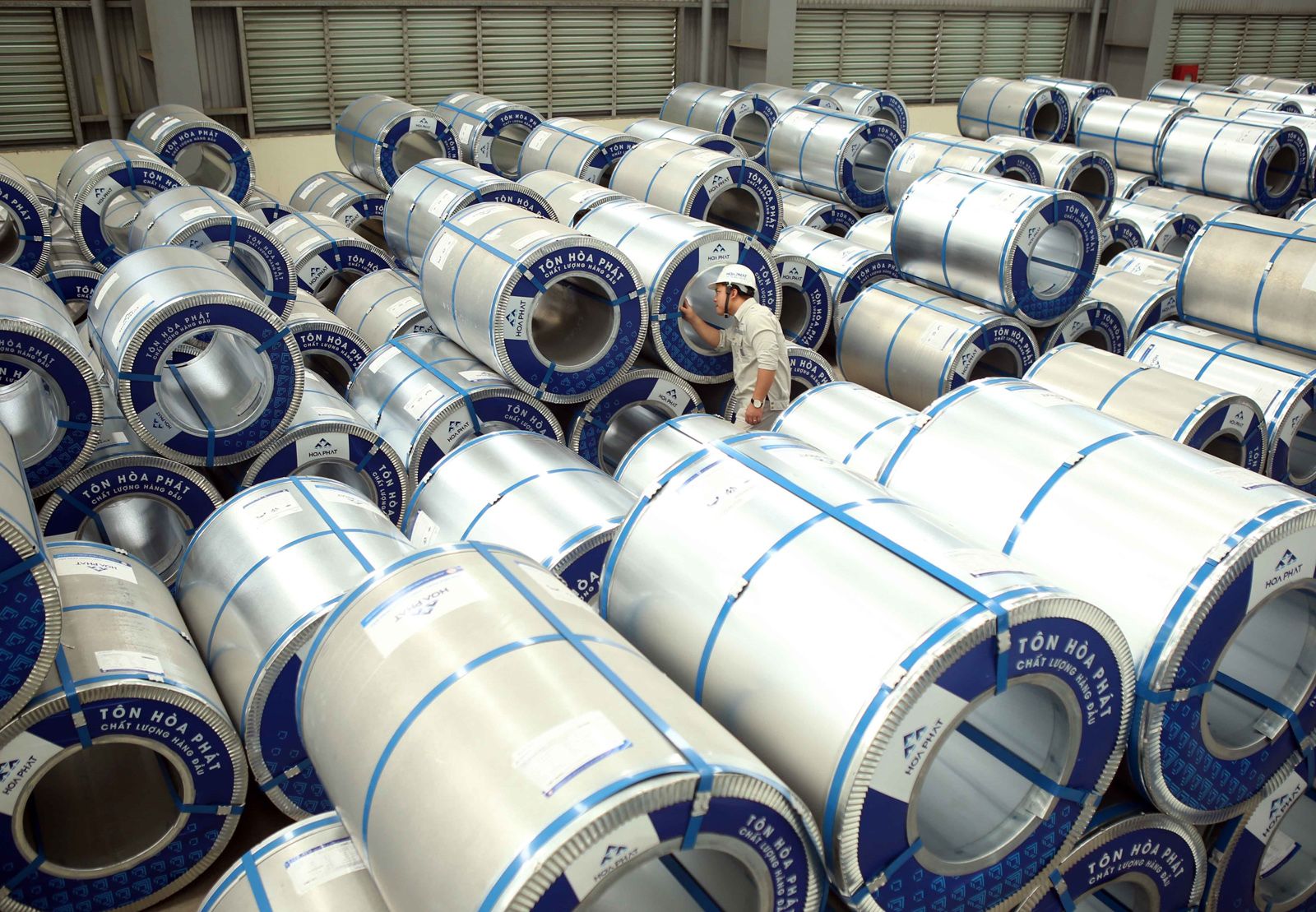




![[Photo] Cutting hills to make way for people to travel on route 14E that suffered landslides](https://vphoto.vietnam.vn/thumb/1200x675/vietnam/resource/IMAGE/2025/11/08/1762599969318_ndo_br_thiet-ke-chua-co-ten-2025-11-08t154639923-png.webp)

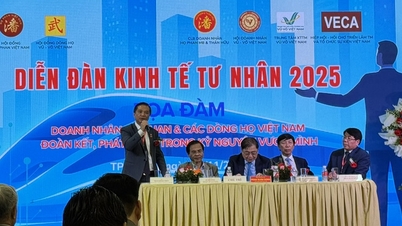

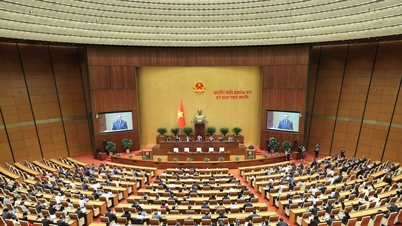













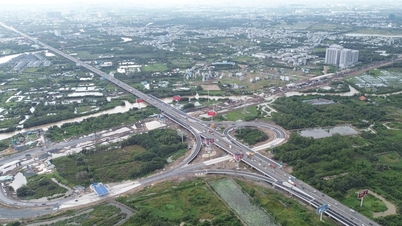
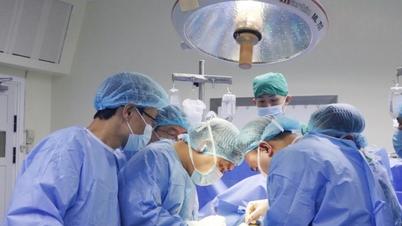





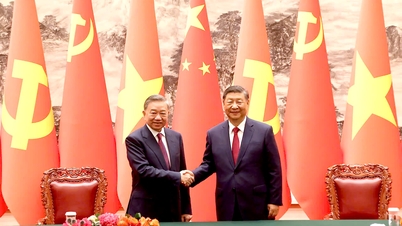









![[Video] Hue Monuments reopen to welcome visitors](https://vphoto.vietnam.vn/thumb/402x226/vietnam/resource/IMAGE/2025/11/05/1762301089171_dung01-05-43-09still013-jpg.webp)
































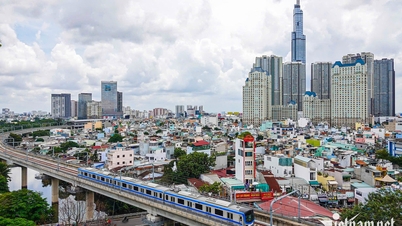









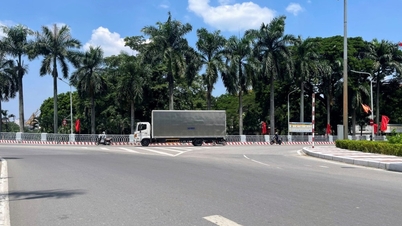



















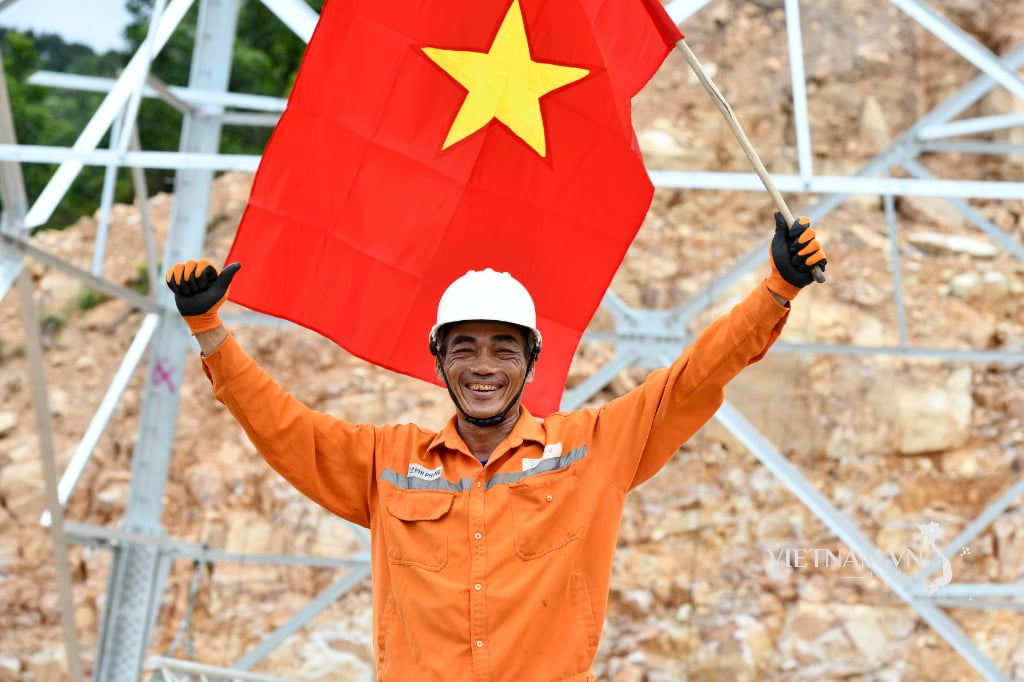



Comment (0)